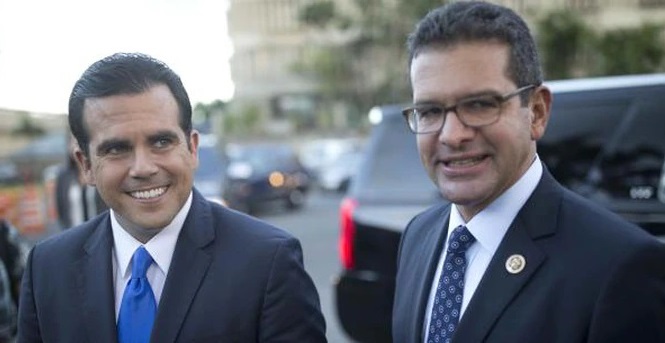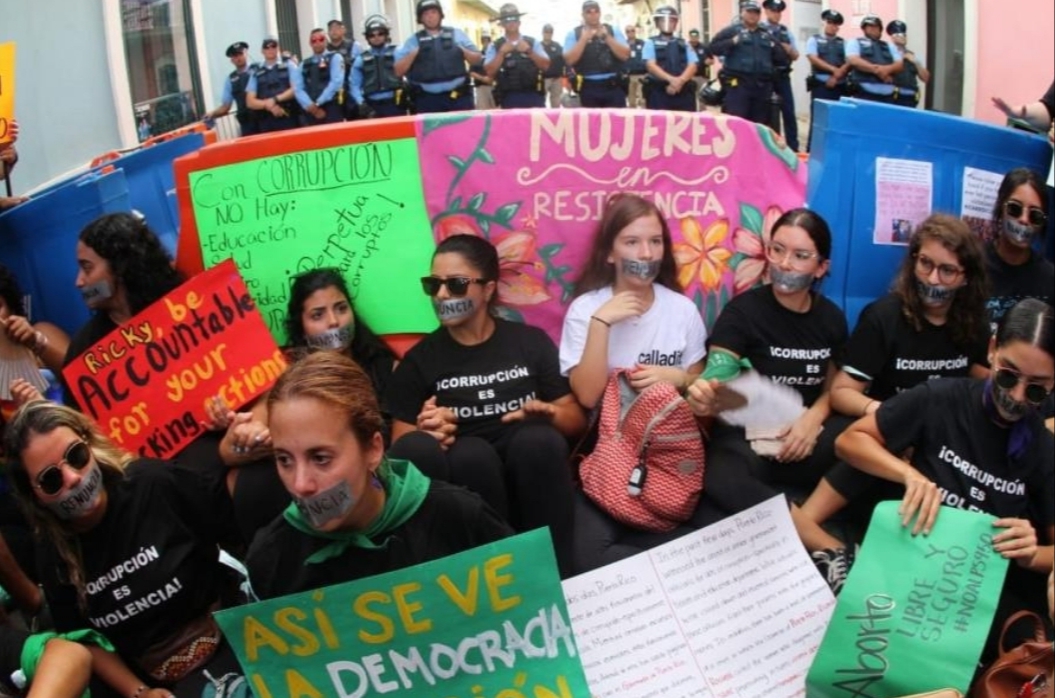The ex-governor of Puerto Rico Ricardo Rossello for the New Progressive Party (PNP for it’s Spanish acronyms) that was forced to resign by one of the largest civil up rise in modern history wants to come back to politics and be the voice of those who ousted him. As a current resident of the State of Virginia he managed to get his name as a “write-in” in the Puerto Rico ballot for a special election that was held out of cycle of the normal electoral process and monitor exclusively by members of his political party.
There already has been several challenges raised by citizens in the island from questioning potential voter fraud to the fact that he is neither a resident of Puerto Rico nor Washington D.C. during the past year which would automatically disqualify him as a candidate in the first place.
Realistically, given the fact that the PNP party is currently in power, the possibility of disqualifying Rossello due to any technicalities is very unlikely. In fact, Rossello unsuccessfully attempted to replace himself during his forced resignation with the current elected Gov. Pedro Pierluisi, a political alliance that dates back for over two decades. Making it further unlikely that any ethical or procedural contradictions will be enforce.

Earlier this month, the territory’s electoral commission certified the election for the shadow delegation, where Rosselló received 53,823 write-in votes.
With that result, Rosselló will join the delegation of four shadow representatives, whose main job is to lobby for Puerto Rican statehood in Washington.
The three other members of that delegation all had their names on the ballot, and only one received more total votes than Rosselló, whose public campaign was largely limited to an appearance on local talk radio and his social media.
“72 hours before the election I went on a radio program and there I let the public know that if they gave me the opportunity, I would be willing to take the position,” said Rosselló.
While Rosselló brings name recognition to the largely symbolic position, some observers worry Puerto Rico’s cause in Congress will become muddied with the scandals that drove Rosselló from office in 2019.
“I see this as a distraction, really, in terms of what he wants to do and Puerto Rico’s agenda,” said a Puerto Rican national Democratic Party operative who asked for anonymity in order to speak frankly.
“Most people here [in Washington] are not going to listen to him and the statehood issue is a civil rights issue that is bigger than him or any other person,” said the operative.
While the question of Puerto Rico’s status is likely to remain unresolved in the near term, the issue has over the past five years gone from a fringe political curio to a serious topic in Washington.
That change can be attributed at least in part to Rosselló, who in 2016 got elected governor on a statehood ticket alongside Resident Commissionner Jenniffer González-Colón (R).
González-Colón has, as Puerto Rico’s sole official voice in Congress, been a staunch advocate for statehood and equality in distribution of federal funds to the island, winning reelection to the post in 2020, on a revamped statehood ticket with now-Gov. Pedro Pierluisi (D).
During his time as governor, Rosselló visited Washington often and helped steer the island’s reconstruction after hurricanes Irma and María, its bankruptcy process and a tumultuous relationship with former President Trump.
Of his short tenure, Rosselló said he enacted reforms “equivalent to the work of 10 or 15 years.”
But his government collapsed following a personal scandal involving publication of text that was sexist, homophobic and made a mockery of the dead during Hurricane Maria that was exchanged between Rosselló and his closest confidants.
Rosselló, who has previously apologized for the content of those messages, said he “committed mistakes,” but “I want that when these things are talked about, they’re talked about in contrast to what I did [as governor].”
“I took the decision to resign for several reasons. Reason number one was my family,” said Rosselló. He has previously said that at the time he feared for his life and that of his family if he remained in the island.
“Reason number two is I was used to a very accelerated pace of reform,” he added. “Although I could have stayed in the post for 18 months, what for?”
Rosselló’s comeback comes at a time when other prominent Democratic governors like Virginia’s Ralph Northam or New York’s Andrew Cuomo have weathered their own scandals, resisting calls to resign.
Unlike Northam or Cuomo, Rosselló faced massive street protests in 2019 and ultimately could not hunker down and wait it out in La Fortaleza, Puerto Rico’s governor’s mansion. An estimated one third of the island’s population ascended to the Capital and the governor’s mansion demanding he’s resignation. A temporary truce was made to give him a few day’s to resign or violence was going to erupt that threaten to overcome the army of state police offices that were protecting Rosselló.
“Redemption only applies if you weather the storm and stay in office, and in [Rosselló’s] case the offense – the chats – were irrevocably blamed on him and he left La Fortaleza and exiled himself to Virginia,” said Alex Howard, a Democratic Party operative who’s worked to promote statehood.
Still, Rosselló is rejoining the political fray as Democrats face internal squabbles over how to address Puerto Rico’s territorial status.
The House Natural Resources Committee last week held hearings on two competing status bills, the statehood bill HR-1522 introduced by González-Colón and Florida Democratic Rep. Darren Soto, and a bill HR-2070 to create a status commission introduced by Rep. Nydia Velázquez (D-N.Y.) and backed by Sen. Bob Menéndez (D-N.J.) and Rep. Alexandria Ocasio-Cortez (D-N.Y.).
Natural Resources Chairman Raúl Grijalva (D-Ariz.) on Monday, June 14th, released Department of Justice reports on the constitutionality of the bills.
While Justice made multiple annotations to both bills, both bills’ proponents declared their respective report a vindication of their position.
Rosselló, an avid proponent of statehood, said he’s ready for supporters of the commission bill to attack him over the scandal that led to his resignation.
“I know they will attack me. I’ve always taken the position of focusing on substance and the future more than attacking my opponents,” said Rosselló.
But Rosselló, who not so long ago was the national face of the statehood movement, said political attacks will “provide a platform” for him to promote statehood.
“I’ll ask them why they want to keep hostage 3 million American citizens who live in Puerto Rico and have chosen statehood,” said Rosselló.
Still, Rosselló’s comeback is so far a lonely one, where his allies in the statehood cause have not welcomed him back with open arms.
“I know that I made mistakes in the past, but I am a person who’s committed to causes: equality, equality for women and discriminated groups, action against climate change is close to my heart,” said Rosselló.
“These are things I’m passionate about and while this time I hadn’t anticipated the opportunity given to me by the people of Puerto Rico in this election, it’s an honor and I’ll work arduously to achieve the objective, which is for Puerto Rican citizens to have equal rights,” he added in an interview.

COMMENTS